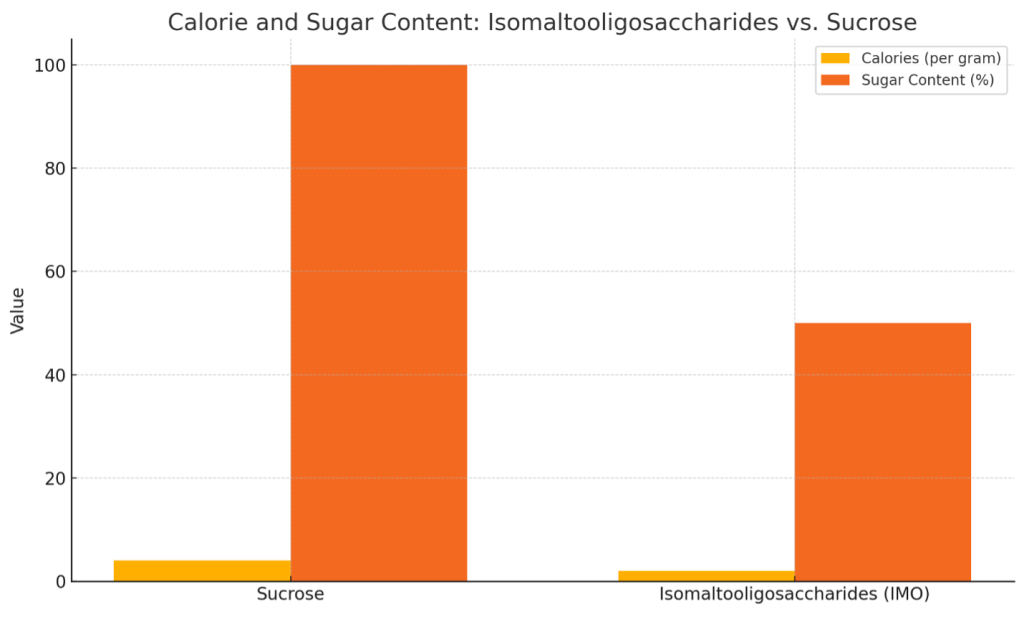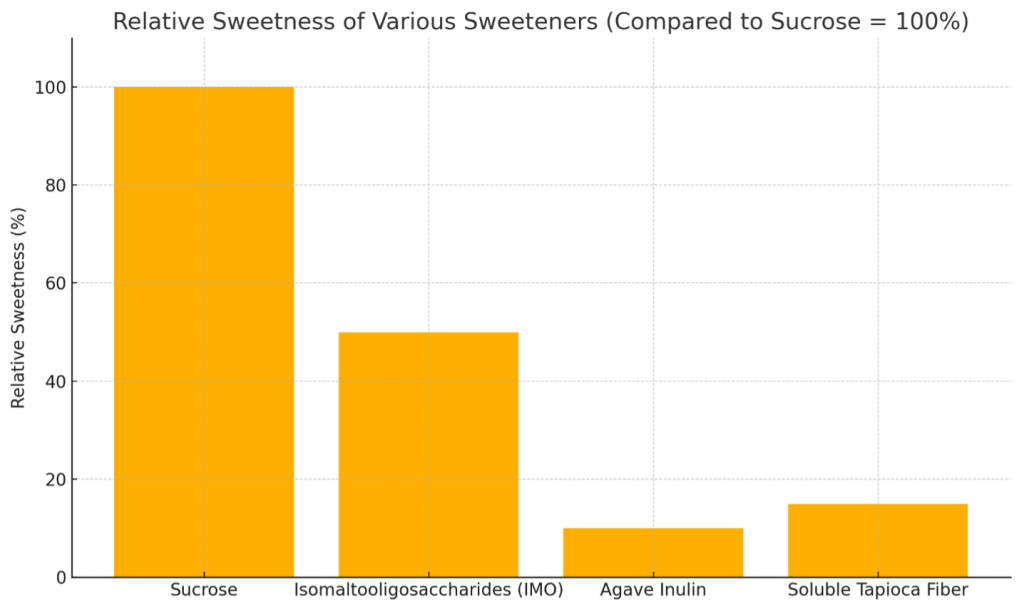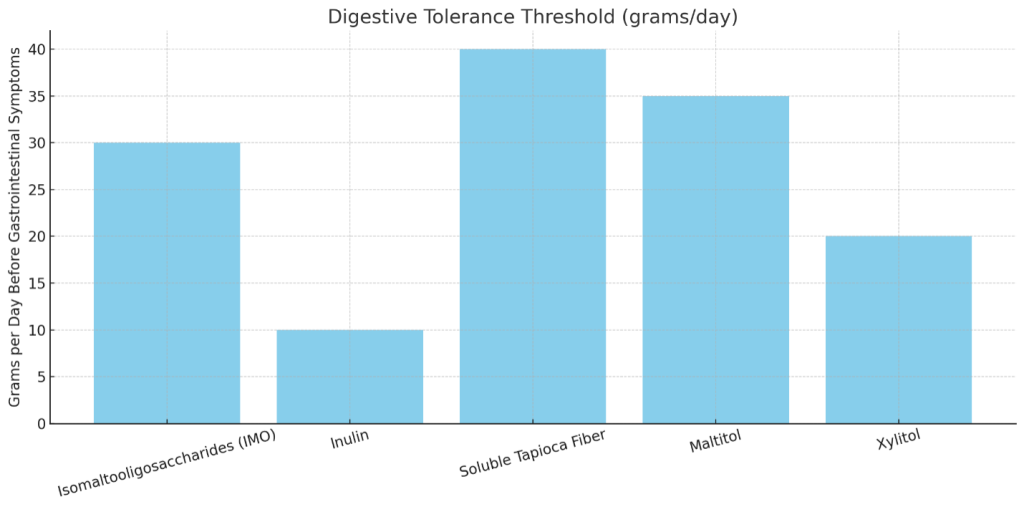Benefits of Using Isomaltooligosaccharides in Better-For-You, Low-Carb, Keto-Friendly, and Sugar-Reduced Formulas
by Thom King, Icon Foods, Chief Innovations Officer/Food Scientist
As consumer awareness of health and nutrition grows, there is a marked shift towards, GLP-1 friendly, low-carb, better-for-you, and ketogenic diets. This trend has created a demand for fibers and sugar alternatives that can effectively replace traditional sugars while providing additional health benefits. Isomaltooligosaccharides (IMOs) are gaining recognition as a prebiotic fiber and sweetener that can fit seamlessly into low-carb, keto-friendly formulations and in particular the booming GLP-1 anti-obesity medication user base.
Isomaltooligosaccharides (IMOs) sold under the Icon Foods brand FibRefine IMO are a type of non-digestible carbohydrate derived from starch through enzymatic processes. As a functional food ingredient, they are low in calories and have a minimal impact on blood glucose levels, making them particularly appealing for low-carb and ketogenic diets.
Benefits of Isomaltooligosaccharides
Low Caloric Content: IMOs provide approximately 2 calories per gram, significantly lower than traditional sugars, making them suitable for low-calorie and reduced-sugar products. This attribute is essential for consumers aiming to manage their weight while enjoying mildly sweet flavors.

The graph above compares Isomaltooligosaccharides (IMOs) and sucrose by:
- Calorie Content: IMO has ~2 kcal/g vs. sucrose at 4 kcal/g.
- Sugar Content: IMO delivers about half the glycemic sugar load of sucrose due to its partial digestibility
Low Glycemic Index: IMOs have a low glycemic index, which means they cause a slower rise in blood sugar levels compared to conventional sugars. This characteristic is particularly beneficial for individuals following low-carb and keto diets, as it helps maintain stable blood glucose levels.
Prebiotic Properties: One of the standout features of IMOs is their prebiotic effect. They promote the growth of beneficial gut bacteria, potentially improving digestive health and enhancing overall gut microbiome balance. This is especially relevant for consumers seeking functional foods that support digestive wellness.
Versatile Sweetness: IMOs provide a mild sweetness that can enhance the flavor profile of various products without overpowering them. This ability to complement other flavors makes them suitable for a wide range of formulations.

Synergy with High Intensity Sweeteners: The synergy between IMOs and high-intensity sweeteners such as stevia and monk fruit creates a unique opportunity to achieve sweetness levels comparable to sucrose while maintaining a healthier profile. IMOs, being low-calorie and prebiotic fibers, serve as a functional bulking agent that enhances texture and mouthfeel in various food applications. When combined with high-intensity sweeteners, which are significantly sweeter than sugar, this blend not only balances sweetness but also mitigates off-notes sometimes associated with some high-intensity sweeteners. This synergistic fellowship allows for reduced overall sugar content in formulas while delivering a satisfying viscosity and sweetness that closely mirrors the taste and mouthfeel of sucrose. This combination offers food manufacturers a versatile solution for creating healthier, lower-calorie products without sacrificing flavor, catering to the growing consumer demand for better-for-you alternatives.
Stability in Formulations: IMOs are stable under heat and acidic conditions, making them suitable for use in baked goods, beverages, and other thermally processed foods without losing their functional properties.
Optimal Applications of Isomaltooligosaccharides
Confectionery Products: IMOs can be effectively used in sugar-free or low-sugar candies and especially chocolates. Their mild sweetness and stability under heat make them ideal for creating chews, and gummies while keeping the calorie count low.
Baked Goods: When formulating low-carb or keto-friendly baked goods, such as cookies, cakes, and muffins, IMOs can replace traditional sugars. They help retain moisture and improve texture, contributing to a desirable mouthfeel.
Plant Based and Dairy Products: IMOs can be incorporated into ice creams, yogurts, and other plant-based and dairy products to reduce overall sugar content while providing a creamy texture and enhancing flavor.
Beverages: Better-for-you and low sugar beverages can benefit from the mild sweetness of IMOs. They can be used in soda, flavored water, protein shakes, and other drinks, appealing to consumers looking for healthier options.
Snack Foods: IMOs can be added to bars, granolas, and other snack products to provide sweetness, improve texture and humectancy without adding significant calories or carbohydrates.
Bars
Isomaltooligosaccharides (IMOs) really shine in bar applications of all kinds—from protein bars to snack, meal replacement, and keto-friendly bars—because of a combination of functional and sensory benefits. Here’s why food formulators value IMOs in bar applications:
| Feature | Benefit in Bars |
|---|---|
| Mild sweetness | Enhances taste without overpowering or off-notes |
| Binding properties | Helps hold inclusions and maintain bar structure |
| Prebiotic effect | Supports gut-health claims |
| Low glycemic impact | Suitable for keto, diabetic, and GLP-1 user products |
| Heat & shear stability | Works in baked, extruded, and slabbed applications |
| Shelf-life support | Prevents bar hardening via moisture retention |
Deeper Dive Into Bars
Excellent Binding and Texture Functionality
- Binding agent: IMOs act as a natural glue that holds dry ingredients like nuts, seeds, and protein crisps together without the need for synthetic binders.
- Chewy texture: They provide a soft, pliable chew that maintains bar integrity without crumbling, ideal for both slab-formed and cold-processed bars.
Mild Sweetness Without the Spike
- Sweetness level: IMOs have a mild sweetness (~30–60% of sucrose) that complements other sweeteners like stevia, monk fruit, and allulose.
- Balanced flavor: They do not contribute bitterness or off-notes, and help smooth out high-intensity sweeteners in better-for-you bars.
Flexible Processing Compatibility
- Stable under heat and shear: IMOs withstand baking and extrusion processes without significant degradation.
- Compatible with slab-formed, cold-pressed, baked, and extruded bars across manufacturing environments.
Formulation Synergy
- Solubility and water activity: IMOs help control water activity and prevent bar hardening over shelf life.
- Synergistic with fibers: They pair well with inulin, soluble tapioca fiber, and polydextrose to reach target fiber claims (like 10g+ per bar) without sensory tradeoffs. (see fiber stacking)
Considerations and Best Practices
While isomaltooligosaccharides have numerous benefits, there are some considerations to keep in mind:
Digestive Tolerance: As with many prebiotics, excessive consumption of IMOs may lead to gastrointestinal discomfort, such as bloating or gas. It is advisable to stack IMOs with other fibers into formulation to increase digestive tolerance.
This graph below shows the digestive tolerance thresholds—the approximate daily intake before gastrointestinal discomfort—for:
- IMOs: ~30g/day
- Inulin: ~10g/day (low tolerance, often causes bloating)
- Soluble Tapioca Fiber: ~40g/day (high tolerance)
- Maltitol: ~35g/day (moderate, can cause laxation)
- Xylitol: ~20g/day (can cause gas and laxation in higher doses)

Isomaltooligosaccharides offer a versatile and beneficial solution for creating GLP-1 friendly, low-carb, keto, better-for-you and sugar-reduced products. Their low caloric content, low glycemic index, prebiotic properties, and stability make them suitable for a wide range of applications, from confectionery to beverages and baked goods.
Reach out to your Icon Foods representative for FibRefine IMO isomaltooligosaccharides, samples, documentation formulation and usage guidance. Since 1999 Icon Foods has been your reliable supply chain partner for sweeteners, fibers, sweetening systems, inclusions and sweetness modulators. Taste the Icon difference.